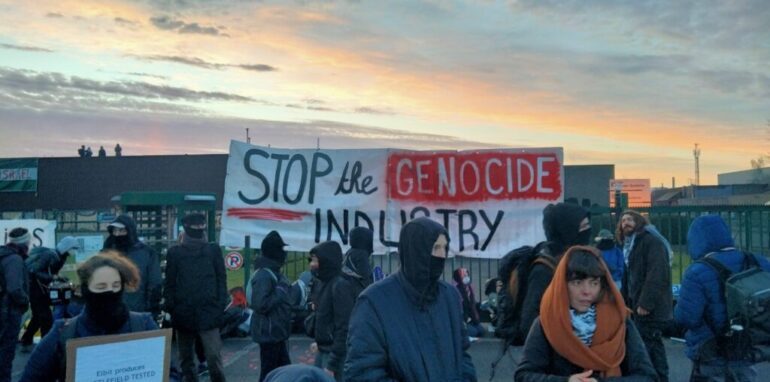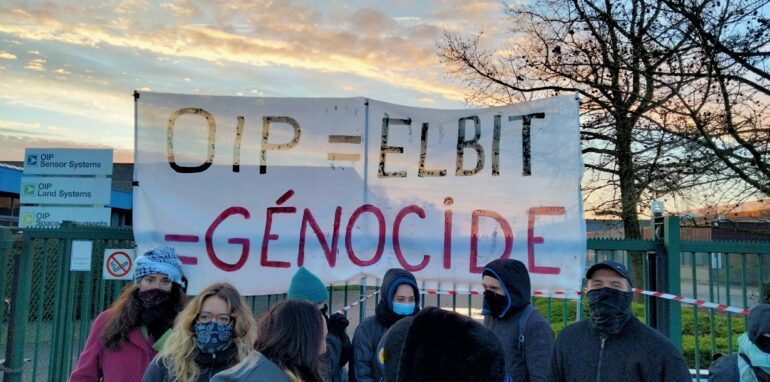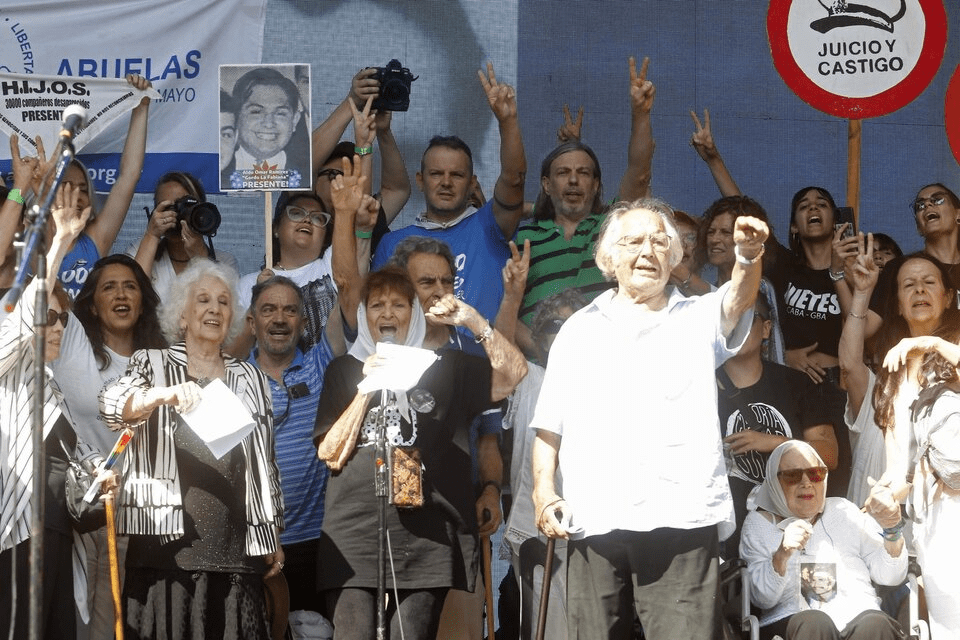Wilde, soms dodelijke mijnstakingen, politieke crisis, rating verlaging, corruptie en het ANC-congres in december… Staan Zuid-Afrika en het ANC op een keerpunt? Kgalema Motlanthe legt de problemen uit van de mijnwerkers en die in het ANC, de regeringspartij. Het ANC moet vernieuwen en het contact met de basis herstellen. Als het congres in december geen radicaal transformatiebeleid uitstippelt, ziet het er niet goed uit. Vijftien miljoen Zuid-Afrikanen, 30% van de bevolking, krijgen nu een uitkering van de staat (minimum pensioen, kindergeld…), die het lot van de armste gezinnen verlicht en iets van de eeuwenlange achterstelling inhaalt – maar niet de kloof van ongelijkheid… -, maar dat is op den duur ook niet houdbaar. Onderwijs, gezondheidszorg, sociale infrastructuur, waar je ook kijkt, kampt Zuid-Afrika met een opeenhoping van handicaps. Er is nood aan een model, een groot samenhangend plan zoals de Duitsers ontwierpen na de Tweede Wereldoorlog, aldus Motlanthe.
De Britse Financial Times had een lang gesprek met Kgalema Motlanthe, Vice-President en voormalige leider van de grootste mijnvakbond, de National Union of Mineworkers (NUM) en vond het belangrijk genoeg om de kern ervan in transcriptie online beschikbaar te stellen: http://www.ft.com/intl/cms/s/0/3a6b7bba-212e-11e2-9720-00144feabdc0.html#axzz2AgdiVTW0 (gratis inschrijven).
Hier enkele excerpten (met waar nodig een korte toelichting tussen vierkanten haakjes.)
Mijnen en trekarbeid
Financial Times: There’s industrial unrest that’s been and is still going on, and going towards [the ANC Congress in]Mangaung in December. Is this crisis over? Is it coming to an end? How do you describe what’s going on?
Kgalema Motlanthe: In the mining sector, the coal and gold sectors are organized under the Chamber of Mines – diamonds have always been a standard alone – so like chrome and the others more or less in the Chamber, and manganese as well because it’s the same mining houses which are mining there. Platinum has also been a standard alone, they don’t have a coordinating structure for that sector, so the negotiations, collective bargaining processes, happen at each mine as separate processes. And so there are always slight differences on the packages, in other words, the conditions of workers, and in this day and age of swift communication people compare information. So if they know that at this mine these are the conditions and they are slightly better than at their mine, the chances are that they will try and raise that. So this spate of unprotected strikes started at Impala Platinum mine when, after going through the collective bargaining processes and reaching agreement, having settled with the unions and so on.
FT: Do you blame Impala for having struck that deal earlier this year?
KM: I think it was ill-advised myself. in the sense that they should have included that in the collective bargaining process to make it part and parcel of the overall agreement, because by unilaterally initiating something like that for one category of workers. They created tensions. (…)at the centre of all these problems, in my view, is the migrant labour system. That’s really if there’s one good thing that must be the outcome of this spate of unprotected work stoppages, it would be the elimination of the migrant labour system in the industry.(…)
FT: You think it can actually be eliminated?
KM: It can be eliminated. I think so. Not by only providing family-given quarters in and around the mines, but by following the Australian model of getting workers on the mine, because they don’t come from far: they just come from areas across the land. And so if the mines provide them with safe transport, buses or whatever, back to the village, so they work on the mine either four weeks, two weeks they are back home; or five weeks, two weeks they’re back home; or six weeks, two weeks they’re back home, so that they remain clear that home is home.
FT: So they remain rooted in their village?
KM: That’s right, yes. …They’re increasingly going younger and younger folks, who are products of the environment of resistance where even where they come from, and so they don’t have the patience to get things changed steadily because they are products of resistance themselves. I mean these are young people who in 1990 were probably two years, three years old. So now with this migrant labour system, and the fact that the mines now offer them what they call living-out allowance, which is not enough for them to get a bond to get a proper house, and also renting, so they end up in informal shacks – that’s why informal settlements just mushroom all over. And they still have to send remittances back home – so literally they have two houses.
FT: Do you think this is also, though, a symptom of a more profound crisis in that you haven’t yet been able to address, or to redress, the system you inherited in 1994, which was built along racial lines?
KM: That’s a maturation of where those tensions if you like… because, as I said, the areas that they are recruited from, villages in the rural areas, they are also economically depressed … the impact of the forced removals [of Black people into rural, overpopulated Bantustans during apartheid] I spoke about means that they are now residing in areas which need lots and lots and lots of infrastructure if they are live to off the land. And so they depend, extended families, depend on remittances sent back home by these young people who are migrant workers. That’s why I’m saying if we can get the migrant system done away with, then you see from the fiscus the role of government would be to provide better social and economic infrastructure in those areas. [by rural development en land reform]
(…)
“Is the ANC capable of going to the moon?”
FT: But do you think, as a veteran of the ANC, do you think that now is the time then that you need that change within the ANC, or the party is on that downward trend?
KM: Yes. There is no doubt about it that we need renewal or we’re going south.
FT: But what does renewal mean?
KM: It means the ANC must continue to be relevant and capable of providing leadership today, not because of the glorious history. That we draw inspiration from; and those generations who were there did their utmost. Today, is the ANC the home, the natural political home to the broadest cross-section of South African social forces.
FT: And you are losing that position?
KM: I would say the renewal means reconnecting this need for… Because, you see, alienation also means that you are disconnecting.
FT: Are you worried about 2014 election? Are you worried that if that renewal doesn’t take place prior to 2014, then the ANC is in danger of seeing its share of the vote at the National Election dropping significantly?
KM: Well, the ANC’s strength has always been direct voter contact and not going to the voters only at a time of an election campaign. Now, there are younger people, there’s a younger generation who don’t know about apartheid, who were born into an environment in which the ANC was a household name. And all of their parents, and so on, tell them about the ANC and nothing else. But they use a simple measurement, a simple measurement. Is the ANC capable of going to the moon? And they say, well, if it can’t deliver books [there was a big problem with delivery of schoolbooks this year], how can it go to space? So it’s a simple measurement. And it is on those simple tasks and functions of leadership that the ANC gets measured by that generation. There’s no sentimentality about it. It’s plain, straightforward.
(…)
Marikana: achtergrond
FT: If you look at what’s happened since August 16th (when police shot and killed 34 striking miners) there’s been quite a significant criticism about just a general lack of leadership in dealing with this crisis? And in Marikana, who filled the leadership vacuum – this is what people say – the young, dynamc guy called Julius Malema.
KM: Well, I don’t know if he filled up the gap, or even any gap existed, because, as said, rioters go out and they burn. And they disperse, they go home and they sleep. That’s what happens. It’s not a cause. Rioting is not a cause. It’s not a clearly defined programme of action. (…) I would go and sit down with two, three, four, five, and make them aware of their immediate circumstances and the workings of the system, and what, in the long term, is in their interests. And how, in the long term, those circumstances can be changed.
You see, they get an increase now and at the expense of not having a union, they will be dismissed, one after the other. They will be dismissed. They won’t realise it now. But they can be told. It can be explained to them properly. (…) And so, for me, once the dust settles now and the blood dries up, they’ll find that, actually, they have to transform themselves into a union, and a union which would have the same house rules has to work collectively, they have to elect people to lead them and so on and so forth.
(…)
FT: I think the way people outside are looking at it is that the strikes have escalated and that they’re a manifestation of something much more profound that needs correcting in South Africa. And there’s also a legacy, the fact that there are huge inequalities in your society.
KM: Of course the inequalities are there, unemployment, poverty, backlogs of infrastructure. This is the reality of South Africa. It has always been like that. The massive profits were a function of that. And so the point I’m trying to get at is this outlook that there’s a crisis, there’s an absence of leadership, what informs that? Because as I said, in the platinum sector, with the mining you see now the Chamber is meeting with the unions with regards to the … gold sector issues. The collective bargaining is holding.
FT: But what do you think? Do you think the government could have done more to arrest these events?
KM: No.
FT: You don’t think it could?
KM: No because mine management and directors were taking their own decisions.
(…)
Grote uitdaging
FT: (…) since 94 there have been many points in South Africa’s history when people could say it was at a tipping point or it was at a crossroads or it was at a crisis or it was at a fork. Do you think this is the most serious period?
KM: As I said, it has a potential of becoming a tipping point precisely because many, many voices are saying that this – huge challenge. The world is not a rosy place to live in today, economically and so on. So there are pressures; what, in different times would have been perhaps peculiar weaknesses are now almost global weaknesses. So what we are grappling with is a challenge which is taking place in a very specific external environment. We have to ensure that we come up with a formula that works for this country. We have close on to 15m South Africans who are recipients of social grants; that is not sustainable. We need to create jobs; we need to grow the economy. Everything else is really – it boils down to that.
FT: Do you think that the big corporates and business in general is doing enough to haul its weight?
KM: The platinum sector, these are new mines. Most of them are greenfield mines. They had an opportunity to create a completely new approach to mining. But they still follow the same old – like Cecil John Rhodes.
(…)
FT: Is that a problem today within the ANC and the ANC leadership, not individuals, just generally?
KM: No, I mean the ANC is still the majority party in Parliament and many, many provinces (…). So people are still willing to follow the ANC’s call. But the point I’m making is the kind of model… Given the accumulated disabilities … whether you’re looking at education, health, social infrastructure, what we need, it’s like a compact that the Germans crafted after the Second World War.
HP 10/2012












